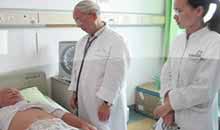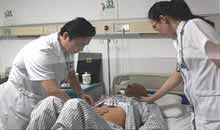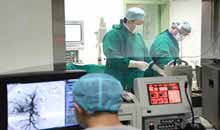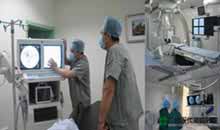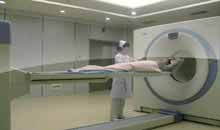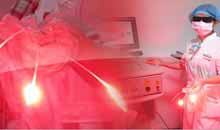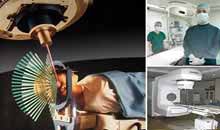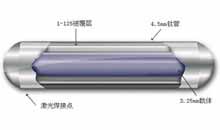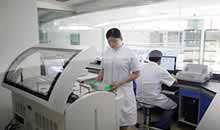The incidence of cervical cancer is indeed
closely linked with patients’ diet, apart from early marriage, early childbearing
and precancerous lesions such as chronic cervicitis. In addition to lycoypene,
nutrients which can boost human immune system can also reduce the risk of
cervical cancer and alleviate the illness. For example,β-Carotene can protect the body’s immune system from
the attack of free radicals, thus boosting the body’s immunity. Besides, vitamin C can protect people from the damage caused by human
papilloma virus. Scientific researches also show that low level of the body’s
zinc and selenium will decrease people’s immunity so as to induce cervical
cancer. Therefore, zinc and selenium supplement is particularly important in
diet, and such foods full of zinc and selenium as fish, lean pork and peanut
are recommended to eat daily.
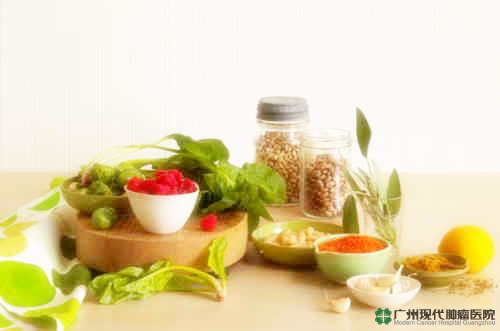
Diet Therapy in Different Stage of Cervical Cancer
1. Foods such as yam, longan pulp, wolfberry and pork liver should be taken after the surgery to benefit qi and nourish blood;
2. Foods like meat, duck egg, fungus, lotus rhizome are suggested to eat in radiotherapy to tonify Yin and nourish blood;
3. Foods like gelatin, turtle and fungus help to tonify spleen and kidney in chemotherapy.
4. Foods that help replenish blood should be taken when there is excessive vaginal bleeding, including lotus rhizome, crataegus, black fungus, quail egg, etc.
5. Turtle, pigeon, chicken and so on, can be taken if there is too much thin watery leucorrhoea.
Diet Tips for Cervical Cancer Patients
1. Pay attention to your β-Carotene supplement. β-Carotene can be converted into vitamin A in human body, which helps to protect the body’s immune system from the attack of free radicals, and boost people’s immunity. Patients with cervical cancer has lower level of β-Carotene than the normal. The low intake of β-Carotene is a risk factor of cervical cancer. Generally, vegetables such as spinach, rape, amaranth, and pumpkin are rich inβ-Carotene.
2. Increase vitamin C intake. There are
more and more cancers caused by viruses, and vitamin C can proctect human body
from their damage, which is of great significance. Studies show that vitamin C
is related to the incidence of cervical cancer. Higher vitamin C intakes can reduce
the risk of cervical cancer. Vegetables like cauliflowers, radish, potato,
pakchoi and rape are rich in vitamin C.
3. Supplement microelements such as zinc and selenium. Zinc and selenium play a very important role in the immune cells production and their function exertion. Low level of zinc and selenium in human body will lead to poor immune function. It has been demonstrated that cervical cancer is closely related to microelements like zinc and selenium. The lack of those microelements will give rise to higher incidence of cervical cancer and breast cancer. Therefore, it is particularly important to supplement zinc and selenium in diet, and foods including fungus, nori, sesame, peanut, nuts, etc are rich in zinc and selenium.
4. Eat more soy foods such as tofu, soybean milk, dried bean curd, green soy bean and sweet pea. Those foods can provide the human body with phytoestrogen, of which isoflavones and lignin have antioxidant effect. The phytoestrogen can also inhibit the growth of cervical cancer cells, squamous cell carcinoma, and cell division, which can effectively prevent the cancer cell from invading normal tissue or metastasising.
Experts of Modern Cancer Hospital Guangzhou remind that if patients with cervical cancer can follow the eating principles mentioned above strictly, he or she will suffer less pain. The increased resistance to disease will improve the patient’s life quality.
If you have any questions, please contact us via online consultation, email or phone call. If you find our website useful, please follow our FaceBook and YouTube, health information will be updated regularly.




